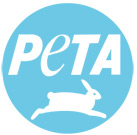
The internet was always meant for convenience, a tool to make communication and anything in relation to communication far easier for everybody. This of course, includes activism, a force of good and positive change that could bring about positive change. Through the internet, its reach and effectiveness would expand exponentially, and this has been true for a great many movements. The ALS Ice Bucket Challenge, #BlackLivesMatter and the Team Trees Initiative are all online movements which have achieved great positive social change on a scale that simply would not have been possible offline.
 There has been criticism for this new breed of activism, which is mostly warranted but it can be agreed on the whole, that there has been an overall net positive.
There has been criticism for this new breed of activism, which is mostly warranted but it can be agreed on the whole, that there has been an overall net positive.
However, for every great and positive change, there is always a negative force which opposes it - a corruption of the potential that the internet provides for social activism and positive movements. One egregious example is PETA or the People for the EthicalTreatment of Animals, a movement whichused to be known for its work in exposing inhumane treatment of animals that would otherwise have gone unheard, starting with the Silver Spring monkey case of 1981 wherePETAexposedtheunethical experimentation on 17 macaque monkeys. A police investigation and a decade long legal battle for custody of the animals gave PETA international recognition and built a name for it as a rights group.
 Their future endeavours, while occasionally doing good, real work for the betterment of animal treatment, exposed the ridiculous views of the organisation to the public.PETAoften harasses any groups and events with themes they find disagreeable such as the International Fur Fair and make insensitive remarks like equating the holocaust to animal slaughterhouses.
Their future endeavours, while occasionally doing good, real work for the betterment of animal treatment, exposed the ridiculous views of the organisation to the public.PETAoften harasses any groups and events with themes they find disagreeable such as the International Fur Fair and make insensitive remarks like equating the holocaust to animal slaughterhouses.
It has become quite clear that PETA leans towards shocking and shaming the public with whatever means necessary.
So, of course in order to shock and shame the most people possible, PETA took their activism online, where they and by extension, their entire message, was promptly reduced to a joke by the internet.
This was due to their tone-deaf appeals for pointless platitudes which achieved nothing while ignoring real problems that could actually change minds. A few examples of their insensitivity include disparaging conservationist Steve Irwin on the anniversary of his death, starting a soft-core pornography site in their name to spread their message and most recently trying to link the coronavirus pandemic to eating meat.
While they have effectively turned themselves into a joke in the public eye, this has minimised the perception of the threat they pose to the animals they claim to protect.
They are openly against pets and are perfectly fine with killing domestic animals as they believe they are better off dead than in the charge of a human caretaker. By not just catching animals off the streets but stealing pets from owners, they catch thousands of animals every year and only adopt a tragic one per cent for each of those years. The rest are euthanised as acceptable losses as quickly as a day after catching them.
Ultimately, while internet activism is a great force for good there are a lot of downsides to it. While much attention can be garnered very quickly, turning that attention into action is not very successful most of the time. Much of the attention they do get can be insincere since it takes very little to give support to a cause over the internet. It cannot be argued that Online Activism is better than Offline activism.
However, a lot of good can still be done and it is important that we understand that hypocrites like PETA are outliers who poison the well.
